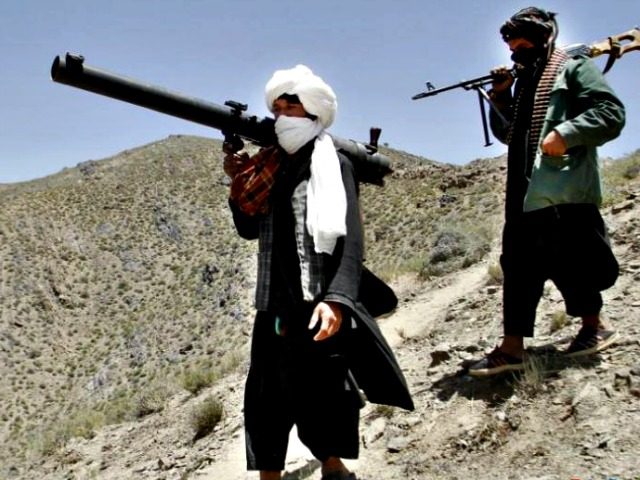A spokesman for the Taliban terrorist group in Afghanistan told President Donald Trump in a recent letter it is time for the United States to withdraw its troops and leave the war-torn country, noting that peace will be elusive.
Under former commander-in-chief Barack Obama, a top spokesman for the U.S.-NATO mission in Afghanistan suggested to Pentagon reporters in October 2016 that the American military and their Afghan counterparts may never defeat the Taliban, adding that the ultimate goal is a “negotiated solution” and reconciliation between the terrorist group and the Afghan government.
The Taliban has repeatedly claimed victory over the U.S.-led foreign troops and their Afghan allies.
In the letter to journalists, Taliban spokesman Zabihullah Mujahid warned President Trump that, as long as the U.S.-led coalition remains on Afghan soil, peace will be difficult to attain, reports the Associated Press (AP).
“Independence from foreign dominance is ‘the only asset’ an impoverished nation like Afghanistan truly has,” reportedly added the letter.
The Afghan Taliban made a similar demand in a statement issued soon after Trump won the U.S. presidential election in November 2016, telling the then-President-elect to pull U.S. troops out of Afghanistan.
Citing the statement, Khaama Press (KP) reported, the “Taliban urged the newly elected [U.S.] President to withdraw its forces from Afghanistan as it claimed victory in the ongoing war in Afghanistan, claiming that the [U.S.] should not further harm its prestige, economy, forces and generals in the country.”
However, it is unlikely President Trump will heed the demand of the Taliban, which captured more territory under Barack Obama than at any time since its regime was overthrown by the U.S. military in 2001.
The Wall Street Journal (WSJ) learned from unnamed Afghan official earlier this week that then-President-elect Trump told Afghan President Ashraf Ghani in a phone call in December that he “would certainly continue to support Afghanistan security forces and will consider a proposal for more troops after an assessment.”
According to the Taliban, Russia also wants the United States to leave Afghanistan.
“We had a common enemy,” an unnamed senior Taliban official told Reuters last month. “We needed support to get rid of the United States and its allies in Afghanistan and Russia wanted all foreign troops to leave Afghanistan as quickly as possible.”
While Taliban officials claim Moscow’s support does not extend beyond “moral and political support,” Afghan intelligence and defense officials are reportedly worried “about more direct support including weapons or funding,” noted Reuters.
American Gen. John Nicholson, top commander of U.S. and NATO troops in Afghanistan, has also expressed dismay towards the “malign influence” in Afghanistan “of external actors” such as “Pakistan, Russia, and Iran.”
In late October 2016, American Brig. Gen. Charles Cleveland, a top spokesman for the U.S.-NATO mission in Afghanistan, indicated the American-led coalition may never defeat the Taliban when asked, “Do you [think] the United States and the Afghan government will ever defeat the Taliban?”
“The goal for the government of Afghanistan is to ultimately come to a negotiated solution with the Taliban,” he responded. “So, our expectation… is it there is really not a military solution to what is happening here in Afghanistan.”
Gen. Cleveland also described the end game as a “reconciliation” between the Afghan government and the Taliban.
Taliban jihadists have repeatedly demanded the withdrawal of foreign troops as a condition for peace talks with the United States and the Afghan government.
In December, spokesman Mujahid indicated that the Taliban’s “two conditions for peace talks are the removal of the group leader’s name from the U.N. blacklist and the withdrawal of all foreign forces from Afghanistan,” reported Military.com.
“However, the Afghan government rejected the group’s demands — an indication of the depth of the rift between the two sides in Afghanistan’s protracted conflict,” it added.
In May 2016, Hibatullah Akhundzada became the leader of the Taliban following the execution of his predecessor Mullah Akhtar Mansour by a U.S. drone strike in Pakistan.

COMMENTS
Please let us know if you're having issues with commenting.